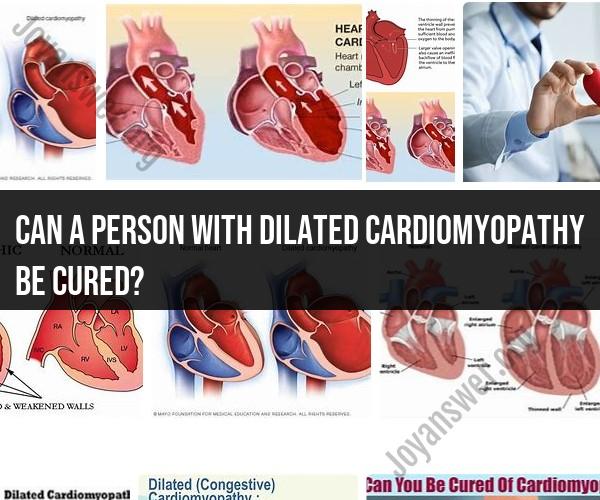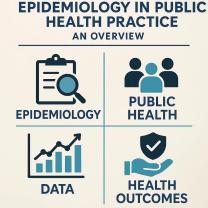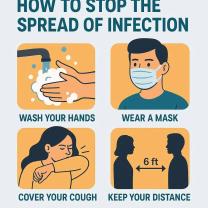Can a person with dilated cardiomyopathy be cured?
Dilated cardiomyopathy (DCM) is a condition characterized by the enlargement and weakening of the heart's left ventricle, which can lead to impaired cardiac function. While there is no guaranteed cure for DCM, the prognosis and management of the condition can vary based on several factors, including the underlying cause, the extent of heart damage, and the individual's response to treatment. Here are some insights into DCM and its management:
Treatment and Management: The primary goal of managing DCM is to improve heart function, alleviate symptoms, and slow down the progression of the disease. Treatment typically includes a combination of medications and lifestyle modifications.
Medications: Healthcare providers often prescribe medications such as angiotensin-converting enzyme (ACE) inhibitors, beta-blockers, diuretics, and in some cases, aldosterone antagonists to manage symptoms and reduce the strain on the heart.
Lifestyle Changes: Patients with DCM are advised to make lifestyle changes to support heart health. This may include a low-sodium diet, regular exercise (under the guidance of a healthcare professional), quitting smoking, and limiting alcohol consumption.
Implantable Devices: In some cases, implantable devices like pacemakers or implantable cardioverter-defibrillators (ICDs) may be recommended to regulate heart rhythms and prevent life-threatening arrhythmias.
Heart Transplant: For individuals with advanced DCM and severe heart failure, heart transplantation may be considered as a treatment option. However, not all patients are eligible candidates, and transplant availability is limited.
Addressing Underlying Causes: Identifying and addressing the underlying causes of DCM, such as viral infections, genetic factors, or toxin exposure, is crucial. Treatment may involve antiviral medications, genetic counseling, or lifestyle changes to reduce exposure to harmful substances.
Ongoing Care: Regular follow-up appointments with a cardiologist are essential for monitoring heart function, adjusting medications, and assessing the need for additional interventions.
Prognosis: The prognosis for individuals with DCM varies widely. Some people may experience significant improvement with treatment and lead relatively normal lives, while others may continue to face heart-related challenges. Early diagnosis and prompt treatment can have a positive impact on long-term outcomes.
It's important to note that while DCM may not always be "cured" in the sense of complete reversal of the condition, effective management can significantly improve the quality of life and extend the lifespan of individuals with DCM. Each case is unique, and treatment plans are tailored to the specific needs and circumstances of the patient. Therefore, individuals with DCM should work closely with their healthcare team to develop a comprehensive treatment plan and receive ongoing care and support.
Can Dilated Cardiomyopathy Be Cured? Examining the Possibilities
Dilated cardiomyopathy (DCM) is a condition in which the heart's main pumping chamber, the left ventricle, becomes enlarged and weakened. This can make it difficult for the heart to pump blood effectively.
There is currently no cure for DCM, but there are treatments that can help to manage the symptoms and improve quality of life. These treatments may include medications, surgery, and lifestyle changes.
Some people with DCM may experience spontaneous improvement, while others may need ongoing treatment or even a heart transplant.
Seeking Answers: The Quest for a Cure to Dilated Cardiomyopathy
Researchers are working to develop new treatments and cures for DCM. Some of the areas of research include:
- Gene therapy: Gene therapy is a type of treatment that uses genes to correct or replace defective genes. Some studies are looking at the use of gene therapy to treat DCM.
- Stem cell therapy: Stem cell therapy is a type of treatment that uses stem cells to repair or replace damaged tissues. Some studies are looking at the use of stem cell therapy to treat DCM.
- Drug discovery: Scientists are also developing new drugs that may help to treat DCM. These drugs may work by targeting the underlying causes of DCM or by protecting the heart from damage.
Dilated Cardiomyopathy Treatment: Exploring the Prospects for Recovery
The prospects for recovery from DCM depend on a number of factors, including the severity of the condition, the cause of the condition, and the patient's response to treatment.
Some people with DCM may experience spontaneous improvement, while others may need ongoing treatment or even a heart transplant. However, with early diagnosis and treatment, many people with DCM can live long and active lives.
If you have been diagnosed with DCM, it is important to talk to your doctor about the best treatment options for you.













